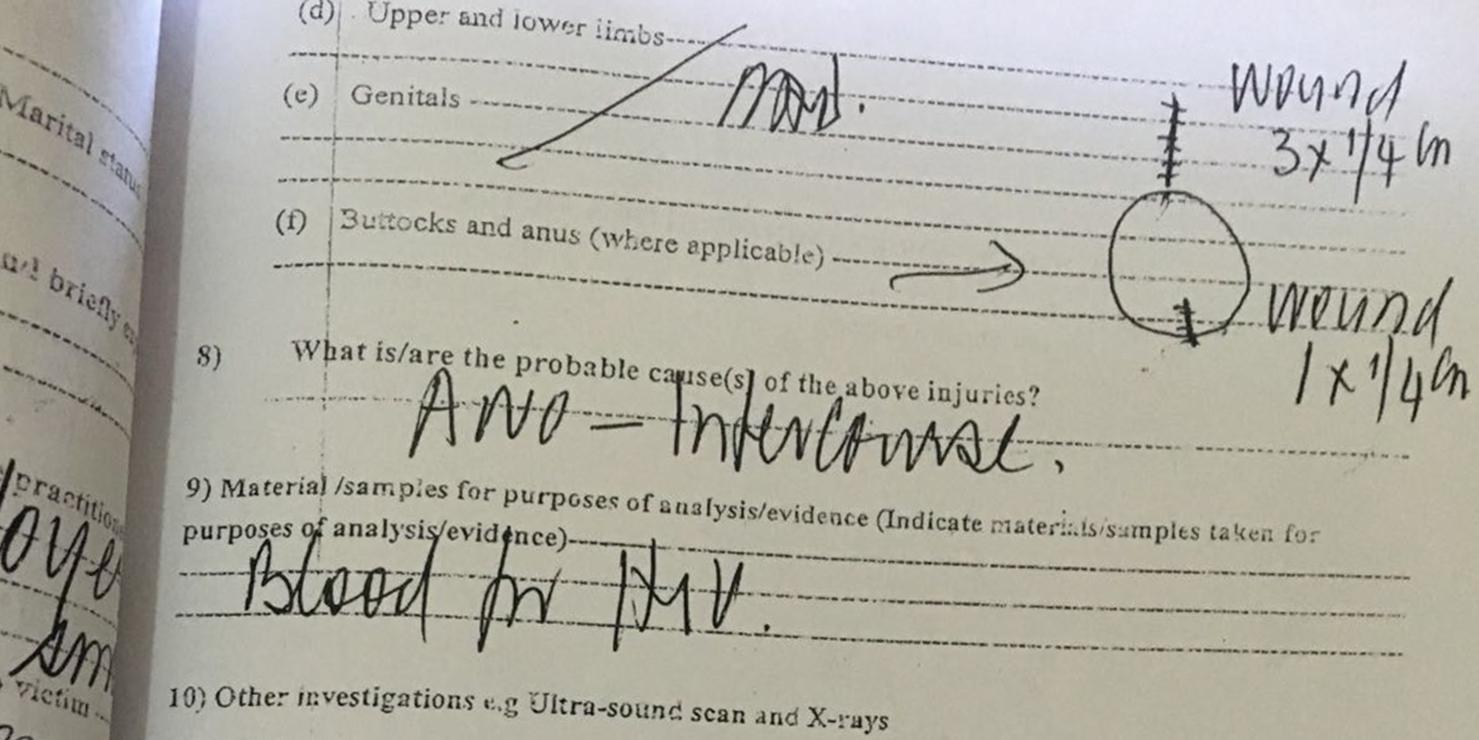World Medical Body Condemns Forced Men Anal Exams As Unscientific and Unethical
(Nairobi, October 17, 2017) – Doctors, medical professionals, and national medical associations should heed the World Medical Association’s October 2017 resolution to end forced anal examinations on people accused of homosexual conduct, Human Rights Watch said today. The General Assembly of the World Medical Association (WMA), an international organization consisting of national medical associations from 111 countries, condemned the use of forced anal examinations to seek evidence of consensual homosexual conduct.
Forced anal examinations, based on long-discredited 19th century science, often involve doctors or other medical personnel forcibly inserting their fingers, and sometimes other objects, into a person’s anus to attempt to determine whether that person has engaged in anal intercourse. The exams, relied upon as “evidence” in prosecutions for consensual same-sex conduct in some countries, have no scientific basis, violate medical ethics, and constitute cruel, degrading, and inhuman treatment that can rise to the level of torture.
“The jury is no longer out. There is no excuse for governments to continue conducting forced anal exams on people accused of homosexuality,” said Neela Ghoshal, senior researcher on lesbian, gay, bisexual, and transgender (LGBT) rights at Human Rights Watch. “The World Medical Association has added its voice to an overwhelming consensus that forced anal exams are unethical, unscientific, and unjustifiable on any grounds.”
The World Medical Association resolution calls on doctors to stop conducting the exams. It calls on national medical associations to issue written communications prohibiting their members from participating in them, and to educate doctors and health workers about “the unscientific and futile nature of forced anal exams and the fact that they are a form of torture or cruel, inhuman and degrading treatment.” It also calls on the World Health Organization to make an official statement opposing forced anal exams as unscientific and in violation of medical ethics, which would build on an existing reference that condemns the practice.
The resolution, proposed by the South African Medical Association with the support of Human Rights Watch, has been through a year-long review and feedback process, allowing all members to comment in advance of adoption. It passed unanimously, with two abstentions.
At the General Assembly session, the association also adopted a revised “Physician’s Pledge,” which calls on doctors to refrain from discrimination on a number of grounds, including sexual orientation.
Several countries that have not yet eradicated forced anal examinations have made recent progress toward ending them, Human Rights Watch said. Governments in Lebanon and Tunisia have taken steps toward banning forced anal exams. Tunisia recently accepted a recommendation to end the exams during its Universal Periodic Review at the United Nations Human Rights Council, although it remains to be seen whether Tunisia will rigorously enforce the ban. In both cases, national medical associations played a key role in shifting their governments’ positions. The Kenya Medical Association, in September, became the latest medical association to condemn the use of forced anal examinations, although the Attorney General’s Office has attempted to defend their use.
Other countries lag behind. In Egypt, men and transgender women arrested on charges of “debauchery” are systematically referred to the Forensic Medicine Authority, a branch of the Justice Ministry, for forced anal examinations, and the results are regularly used in court to put people behind bars on the grounds of their presumed sexual orientation. Since late September, according to Egyptian human rights activists, at least five Egyptians have been subjected to forced anal exams as part of a vicious crackdown after several young people waved rainbow flags at a concert.
And in Tanzania in late 2016, police resorted to forced anal examinations to seek “proof” of homosexual conduct for the first time, as far as Human Rights Watch has been able to determine, as part of a broader campaign against LGBT people and their allies. Neither the Egyptian Medical Association nor the Medical Association of Tanzania, both members of the WMA, have publicly condemned the exams.
Other countries in which Human Rights Watch has documented the use of forced anal exams between 2010 and 2015 include Cameroon, Turkmenistan, Uganda, and Zambia. Human Rights Watch has received reports of government authorities ordering forced anal exams on people accused of homosexual conduct in Syria and the United Arab Emirates, but has not been able to independently verify these allegations.
“Doctors play a critical role in upholding ethical standards and are often part of the moral compass of society,” Ghoshal said. “In Egypt, in Tanzania, and in all countries in which people are being subjected to forced anal examinations, doctors should take the lead in ending these horrific abuses.”
Human Rights Watch "HRW"
Human Rights Watch "HRW"


Comments